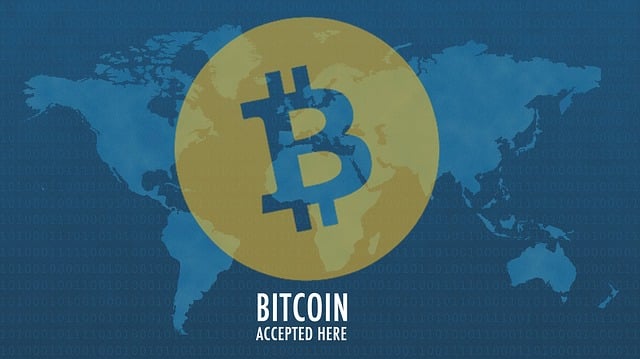Does Cash App Charge a Fee to Buy Bitcoin?
Author: Jameson Richman Expert
Published On: 2025-08-30
Prepared by Jameson Richman and our team of experts with over a decade of experience in cryptocurrency and digital asset analysis. Learn more about us.
Many cryptocurrency investors, whether beginners or seasoned traders, frequently ask: Does Cash App charge a fee to buy Bitcoin? The answer is nuanced and requires a thorough understanding of the platform’s fee structure. While Cash App is renowned for its intuitive interface, ease of use, and rapid onboarding, its cost model is less transparent compared to dedicated crypto exchanges. Recognizing these costs—spanning transaction fees, spreads, and hidden charges—is crucial because they directly influence your profit margins, trading timing, and overall investment strategy. Given the highly volatile and fast-changing nature of the cryptocurrency market, understanding how Cash App incorporates fees—both visible and hidden—can help traders make more informed decisions and optimize their purchasing strategies. Having extensively used Cash App myself and analyzed its fee mechanisms in depth, I can confirm that while the platform simplifies crypto buying, its costs are embedded in various ways that necessitate careful consideration. This comprehensive guide will explore Cash App’s fee model, how market conditions impact costs, comparisons with other exchanges, and practical tips to minimize your Bitcoin purchasing expenses.

Comprehensive Breakdown of Cash App’s Fee Structure
When I first started using Cash App to buy Bitcoin, I appreciated its straightforward process—enter an amount, confirm, and execute. However, I soon realized that its fee structure is more complex than it appears at first glance. Unlike traditional stock or forex brokers—which often disclose flat or percentage-based trading fees—Cash App primarily earns through the spread—the difference between the platform’s buy (ask) and sell (bid) prices. This spread functions as the platform’s profit margin and fluctuates dynamically based on market volatility, liquidity, and trading volume. Essentially, you’re paying a premium built into the transaction, rather than a transparent, fixed fee.
Specifically, the spread on Cash App can vary significantly during turbulent market conditions. During periods of high volatility—such as rapid price surges, sharp declines, or major news events—the spread can widen, sometimes exceeding 1.76%. To illustrate, if Bitcoin’s market price is $30,000, a 1.76% spread adds approximately $530 in costs, effectively pricing your Bitcoin at around $30,530—more than the current market rate. This hidden cost can substantially impact your returns, especially if you trade frequently or in larger volumes, as the costs compound over multiple transactions.
Beyond the spread, Cash App imposes additional fees depending on your funding method:
- Instant deposits via debit or credit card: These transactions include a 3% fee per deposit. This fee covers the cost of immediate settlement and transaction processing, making quick trades more convenient but at a premium.
- Bank transfers (ACH transfers): These are generally free, but they take longer—typically 1-3 business days—to complete, making them less ideal for traders seeking immediate entry or exit points.
It’s important to note that Cash App does not disclose a flat, explicit fee for buying Bitcoin. Instead, the total expense is a combination of the spread, deposit method fees, and prevailing market conditions at the time of trading. This lack of transparency requires traders to actively monitor real-time market spreads and understand how their funding choices influence the overall cost. Being aware of these variables allows for more strategic decision-making, especially during volatile periods where costs can spike unexpectedly.
The Impact of Market Volatility on Transaction Costs
Market volatility is one of the most influential factors affecting the true cost of purchasing Bitcoin on Cash App. During bull runs or sudden downturns, liquidity can thin out, prompting Cash App and similar platforms to widen their spreads to cushion against increased risk. I personally observed this during the 2021 Bitcoin surge when spreads frequently exceeded 2%, significantly increasing the effective purchase price.
This widening of spreads during turbulent times occurs because the platform adjusts its ask and bid prices based on real-time liquidity, order book depth, and overall market risk. When volatility spikes, the risk management protocols kick in, leading to larger spreads to protect profitability and mitigate potential adverse price swings. Consequently, executing trades during these periods becomes more expensive, eroding profit margins or raising the initial cost of investment.
To navigate such volatile environments, traders should consider using limit orders—placing a buy order at a specified price—rather than market orders, which accept the current ask price. Limit orders can be set to execute only when the spread narrows to acceptable levels, thereby reducing embedded costs. Additionally, timing your trades during periods of lower volatility—when spreads tend to tighten—can result in significant cost savings and better overall returns.
Comparative Analysis: Cash App vs. Other Cryptocurrency Platforms
While Cash App’s seamless integration with banking systems makes it a popular choice for quick, casual transactions, dedicated cryptocurrency exchanges typically offer more transparent and often more affordable fee structures. Here’s a detailed comparison:
- Binance: Known for its ultra-low trading fees—just 0.1% per spot trade—Binance offers tiered discounts for high-volume traders and those holding Binance Coin (BNB). Its transparent fee schedule, advanced trading tools, and large liquidity pool make it an excellent choice for active traders seeking to minimize costs.
- Coinbase: Widely regarded for its user-friendly interface and regulatory compliance, Coinbase charges around 1.49% on standard card purchases, with additional fees for instant deposits or smaller transactions. While slightly higher in costs than Binance, Coinbase appeals to beginners due to its simplicity and security.
- MEXC, Bitget, Bybit: These exchanges often feature promotional discounts, tiered fee structures based on trading volume, and perks like referral programs. They are particularly attractive for high-frequency or large-volume traders seeking lower fees and advanced trading features.
Compared to these platforms, Cash App relies heavily on the spread and deposit fees, which can be more expensive during periods of high volatility or for larger trades. If you regularly engage in high-volume trading or prioritize fee transparency, exploring dedicated exchanges with clearer, lower-cost fee structures may be more advantageous.

Personal Insights and Strategies to Minimize Costs
Based on my experience, diversifying your trading platforms is key to optimizing costs. Initially, I relied solely on Cash App for quick, small investments, but I soon realized that hidden costs—especially during volatile markets—eroded my gains. By analyzing my transaction data, I noticed that during periods of high volatility, spreads widened dramatically, inflating my purchase prices.
To mitigate this, I adopted a multi-platform approach: using Binance or Coinbase for large, strategic purchases to benefit from their transparent, low fees, while reserving Cash App for small, quick trades or cashouts. This strategy allows for cost-effective trading and better expense control.
Another valuable tactic is timing your trades. During high volatility, spreads tend to expand, increasing costs. Waiting for markets to stabilize or executing trades with limit orders—setting a maximum buy price—can significantly reduce the effective purchase price. Staying informed about market conditions, price alerts, and platform fee policies helps in making strategic decisions that maximize your returns.
Practical Tips for Cost-Effective Bitcoin Purchases on Cash App
- Use ACH transfers instead of instant deposits: Avoid the 3% instant deposit fee by planning ahead and transferring funds via bank transfer, especially for larger amounts.
- Trade during periods of low volatility: Buy when spreads are narrower, typically during calmer market conditions, to reduce embedded costs.
- Leverage limit orders: If available, this allows you to specify your maximum buy price, helping you avoid paying inflated spreads during volatile periods.
- Compare across platforms: For significant investments, consider transferring funds to exchanges like Binance or Coinbase, which often feature lower, transparent fees.
- Stay informed and plan ahead: Regularly review platform fee policies, market conditions, and utilize price alerts to execute trades at optimal times.
Summary: Are You Paying a Fee to Buy Bitcoin on Cash App?
In conclusion, yes—Cash App does incur costs when purchasing Bitcoin. These costs are primarily embedded within the spread—an adjustable margin between buy and sell prices—which fluctuates based on market volatility, liquidity, and trading volume. Additionally, funding methods like instant card deposits attract a 3% fee, increasing your overall expenses. While Cash App offers unmatched simplicity and quick transaction capabilities suitable for casual investors, active traders or those aiming to maximize returns should be aware of these hidden costs and consider alternative strategies.
By understanding the detailed fee components, monitoring market conditions, timing your trades wisely, and utilizing multiple platforms—especially for larger transactions—you can significantly lower your trading expenses. Staying well-informed and adopting disciplined trading practices are essential in navigating the dynamic crypto landscape, helping you retain more of your gains and achieve your financial goals more effectively.